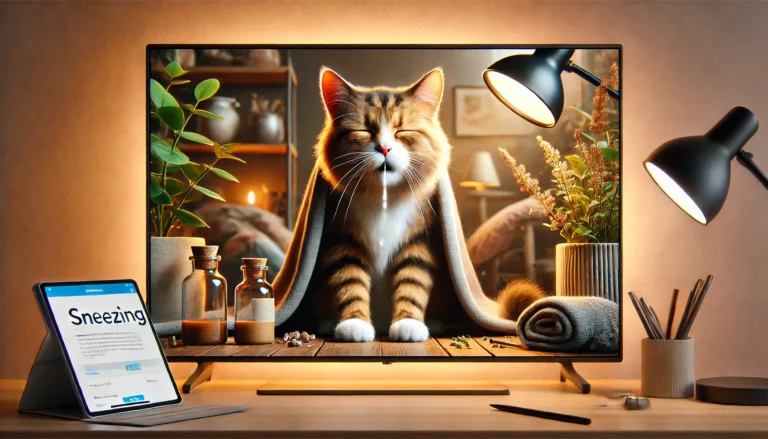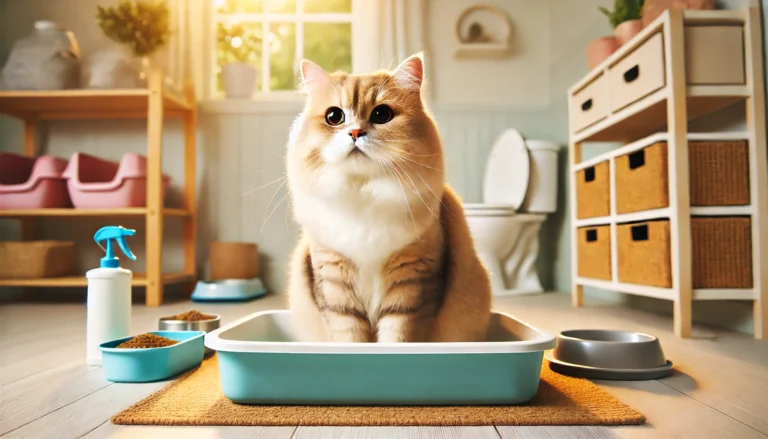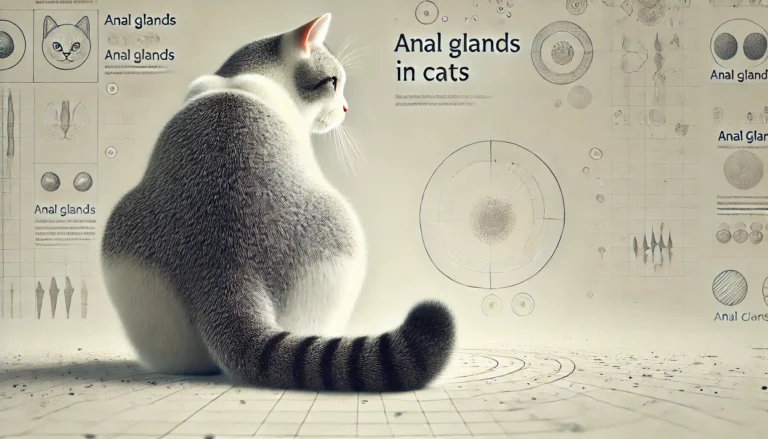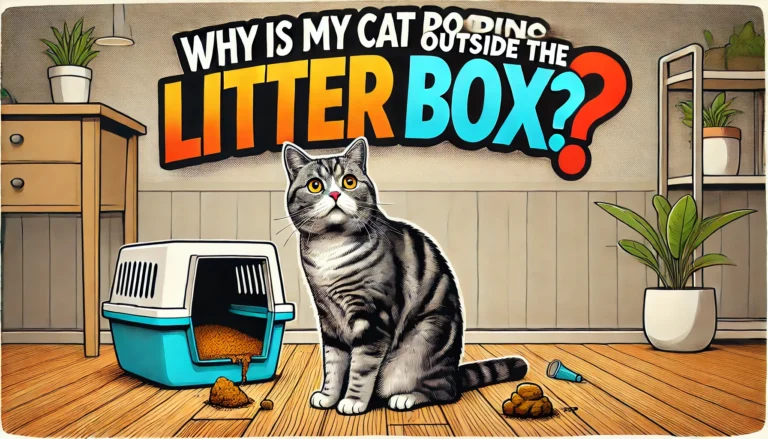Is it normal for a cat to snore?
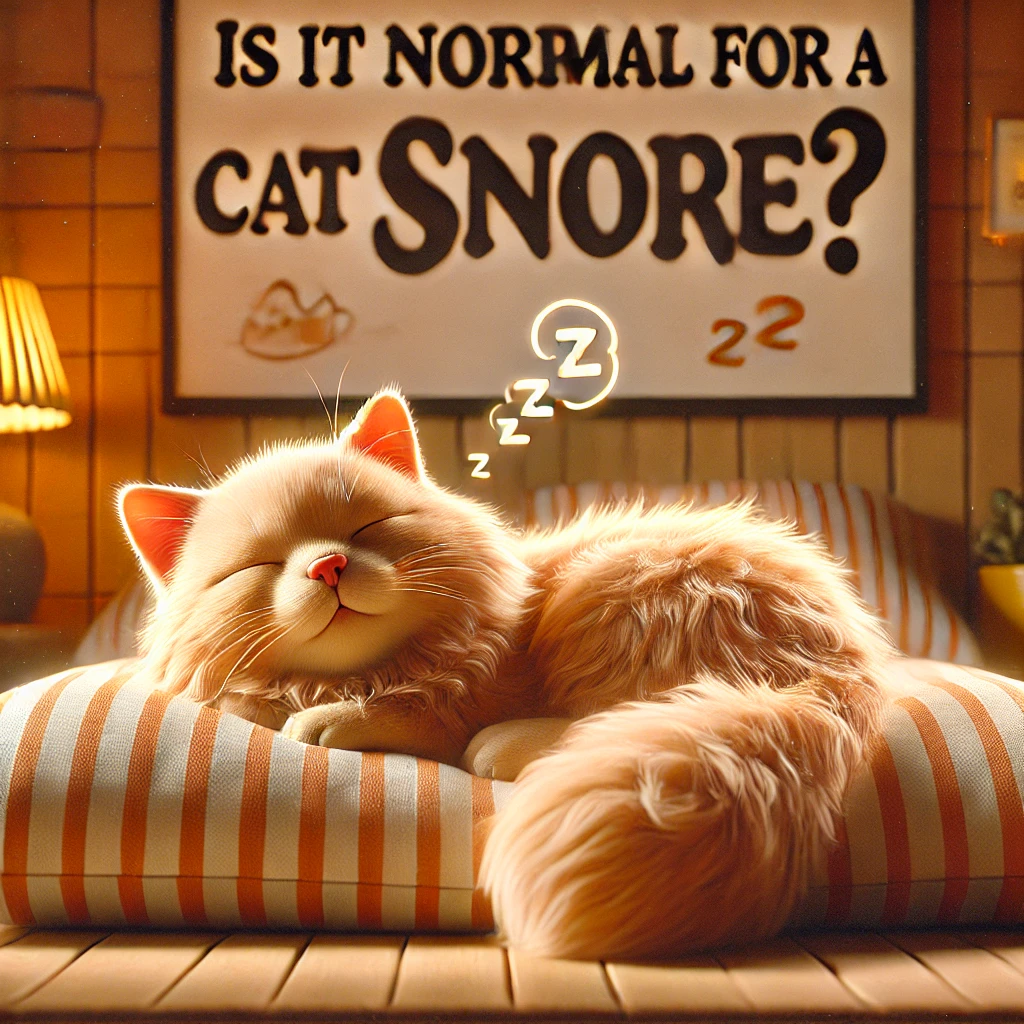
Snoring isn’t just a human trait—many pet owners may notice their cats snoring too. If your feline companion has ever snored while dozing in a sunbeam or curled up on your lap, you may have wondered, “Is it normal for a cat to snore?” or perhaps asked yourself, “Why does my cat snore?” In this article, we’ll dive deep into the topic of snoring in cats, looking at whether it’s normal for a cat to snore, and when you should be concerned. We’ll explore the causes, implications, and when you should seek veterinary advice if your cat’s snoring becomes problematic. Understanding why cats snore is key to ensuring your furry friend remains healthy and happy.
What Is Snoring in Cats? Is It Normal for a Cat to Snore?
Defining Snoring: Is It Normal for a Cat to Snore?
Snoring is caused by vibrations in the airways as air moves past relaxed throat tissues during sleep. It’s a sound most humans can relate to, but when your cat snores, it may leave you wondering, “Is cat snoring normal?” Snoring can vary depending on the cat’s breed, age, and overall health. Some cats snore lightly while others may snore loudly, leaving their owners with questions about the cause.
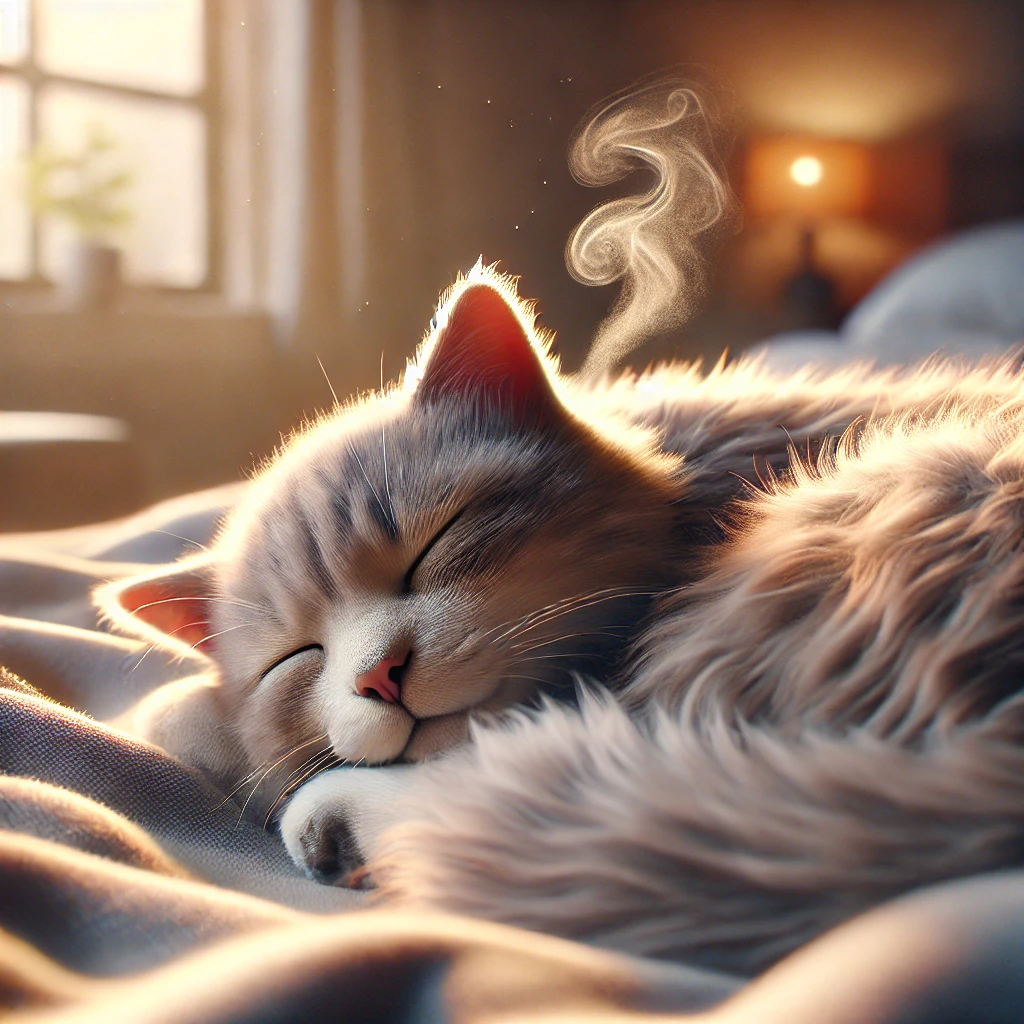
Snoring vs. Other Noises: How to Tell If Your Cat Is Snoring
Not all sounds that your cat makes while sleeping are snoring. Cats can make various noises like purring or chattering, but cat snoring is distinct. If you’re unsure whether your cat is snoring, it helps to differentiate it from other common sleep sounds:
- Chattering: A cat may make chattering sounds, especially when observing birds or small animals outside.
- Purring: Usually signifies contentment.
- Whining or Whimpering: Could indicate discomfort, unlike snoring which is typically rhythmic.
Why Do Cats Snore? Is It Normal for a Cat to Snore While Sleeping?
Why Do Cats Snore While Sleeping?
Understanding why a cat snores involves looking at how cats sleep and the structure of their airways. So, why do cats snore while sleeping? Cats enter deep sleep stages, and it’s during these phases that the muscles in their throat and airway relax, which can restrict airflow and cause snoring. The sound you hear is simply the air passing through a slightly narrower passage.
Can Cats Snore? Is It Normal for a Cat to Snore?
Many cat owners ask, “Can cats snore?” Yes, they can. It’s a natural occurrence, and in many cases, cat snoring is normal. Breathing patterns change during sleep, and snoring is more likely to happen when a cat is fully relaxed or lying in certain positions.
Is It Normal for Cats to Snore Loudly?
When Snoring Becomes a Concern for Cats: Is It Normal for Cats to Snore Loudly?
While cat snoring is common, there are times when it might signal an underlying issue. You may ask yourself, “Why is my cat snoring so loud?” or “Is it bad if my cat snores so loudly?” There are several causes of loud snoring in cats, including obesity, allergies, respiratory infections, or anatomical issues. If you notice sudden onset snoring or a change in the intensity of your cat’s snoring, it’s worth considering a visit to the vet.
Is My Cat Snoring or Wheezing? Is It Normal for a Cat to Snore While Wheezing?
It’s important to differentiate snoring from wheezing. Some cats may make a sound that resembles snoring but is actually wheezing or labored breathing, which can be caused by respiratory conditions like asthma. If your cat is wheezing or struggling to breathe, you should ask, “Is it normal for my cat to snore, or is this something more serious?”
Can Cats Snore When They Get Older?
Do Cats Snore More as They Age? Is It Normal for Older Cats to Snore?
Many cat owners ask, “Do cats snore when they get older?” or “Do elderly cats snore more?” As cats age, their muscles lose some of their tone, including those around the airway. This natural weakening can make it more likely for older cats to snore. Elderly cat snoring is often just a normal part of the aging process. However, if your senior cat has started suddenly snoring or if their snoring has increased significantly, it could indicate a medical issue.
Why Does My Cat Snore? Common Causes of Cat Snoring
Why Does My Cat Snore?
If you’re asking, “Why does my cat snore?” the answer may vary. Snoring in cats can be influenced by several factors:
- Breed Characteristics: Certain breeds, particularly flat-faced (brachycephalic) cats like Persians and Exotic Shorthairs, are more prone to snoring. These breeds have shorter nasal passages, which can cause restricted airflow and snoring.
- Obesity: Excess fat around the neck can put pressure on a cat’s airways, making them more likely to snore.
- Respiratory Infections: Infections like feline herpesvirus or bacterial infections can cause congestion, leading to snoring.
- Dental Issues: Problems in the mouth or throat, such as gum disease or abscesses, can affect breathing and cause snoring.
Do you know?
Diabetes in cats is one of the growing diseases. Hence, it is essential to know types, causes, symptoms, and treatment options of diabetes in cats.
Feline Sleep Apnea: Is It Normal for a Cat to Snore Because of Sleep Apnea?
Just like humans, cats can develop sleep apnea, a condition where breathing temporarily stops during sleep. This can be a serious cause of snoring in cats. If your cat stops breathing for short periods and then resumes snoring loudly, it may be indicative of sleep apnea. Feline sleep apnea can be linked to obesity, breed traits, or respiratory problems.
How to Tell If Your Cat’s Snoring Is Normal
Is Cat Snoring Normal?
To answer the question “Is cat snoring normal?”, it’s crucial to assess the overall behavior of your cat. Cat snoring in sleep is usually harmless, but if you notice other signs, such as snoring loudly or suddenly, it might be time to investigate further.
Here are a few things to keep an eye on:
- Changes in Snoring Pattern: If your cat suddenly started snoring, it could be a sign of something more serious.
- Loud Snoring Cats: If the snoring is unusually loud, you may need to consider whether other issues like nasal congestion or sleep apnea are contributing factors.
- Other Symptoms: If your cat’s snoring is accompanied by coughing, sneezing, or wheezing, it could indicate a respiratory infection or allergy.
Is It Ok If My Cat Snores? Is It Normal for a Cat to Snore?
If your cat’s snoring is occasional and they seem healthy otherwise, it’s okay if your cat snores. However, always monitor for sudden changes, such as loud snoring or difficulty breathing.
What to Do if Your Cat Snores Excessively
Is It Normal for My Cat to Snore Loudly?
If your cat snores excessively or the snoring is particularly loud, you may be asking, “Is it normal for cats to snore loudly?” The answer depends on the cause. Cats that are overweight, have respiratory issues, or are elderly may snore more loudly. Regular vet visits, a healthy diet, and weight management can help reduce the severity of loud snoring in cats.
Can Cats Snore While Sleeping?
Yes, cats can snore while sleeping, especially if they are deeply relaxed or lying in a position that puts pressure on their airways. Cat snoring while awake can occur too, but this is less common and may indicate a health issue, like a respiratory infection or obstruction.
Conclusion: Is It Normal for a Cat to Snore?
In conclusion, is it normal for a cat to snore? For most cats, snoring is a normal, harmless behavior. However, if the snoring becomes excessively loud, changes suddenly, or is accompanied by other concerning symptoms, it’s worth consulting a veterinarian. Cat snoring loudly could be a sign of underlying issues, from obesity to respiratory conditions, which require proper attention. Always monitor your cat’s overall health and consult a vet if you notice anything unusual.
Should I worry about my cat snoring?
In most cases, cat snoring is normal and not a cause for concern. However, if the snoring is loud, persistent, or accompanied by other symptoms like difficulty breathing, coughing, or lethargy, it’s best to consult a veterinarian. Sudden changes in snoring or loud snoring might indicate underlying issues such as respiratory infections, allergies, or sleep apnea.
Does cat snoring mean deep sleep?
Yes, cat snoring often occurs during deep sleep, especially in the REM (Rapid Eye Movement) phase. During this stage, your cat’s muscles relax, including those in the throat, which can narrow the airway and cause snoring. While deep sleep is normal, snoring is more likely when the cat is in a very relaxed state.
How rare is it for a cat to snore?
Cat snoring is fairly common, especially in certain breeds with flatter faces (e.g., Persians, Exotic Shorthairs) due to their shorter nasal passages. While not every cat snores, it’s not rare for cats to make snoring noises occasionally, especially when they are deeply relaxed or asleep in certain positions.
Is it normal to hear your cat breathing while sleeping?
Yes, it’s normal to hear your cat’s breathing while sleeping, especially if they are in a deep sleep or lying on their side. Cats’ breathing may become more audible during relaxation or REM sleep. However, if the breathing is very loud or labored, or if you notice wheezing, this could be a sign of respiratory issues and should be checked by a vet.
Is it OK if my cat breathes fast while sleeping?
Fast breathing in cats, also known as tachypnea, can sometimes be normal, especially if your cat is in a dream state or experiencing REM sleep. However, if your cat is consistently breathing rapidly, even when awake, or appears to be struggling to breathe, it could indicate a medical issue, such as a heart or lung condition. In such cases, it’s important to consult a vet.
Why is my cat snoring so loud?
If your cat is snoring loudly, it could be due to several factors:
Breed: Brachycephalic breeds (like Persians or Exotics) are more prone to loud snoring due to their flat faces and narrow nasal passages.
Obesity: Extra weight around the neck can put pressure on the airways, leading to loud snoring.
Health issues: Respiratory infections, allergies, or even sleep apnea can cause louder snoring. If this is a sudden change, or if accompanied by other symptoms, it’s best to consult a vet to rule out any health concerns.

